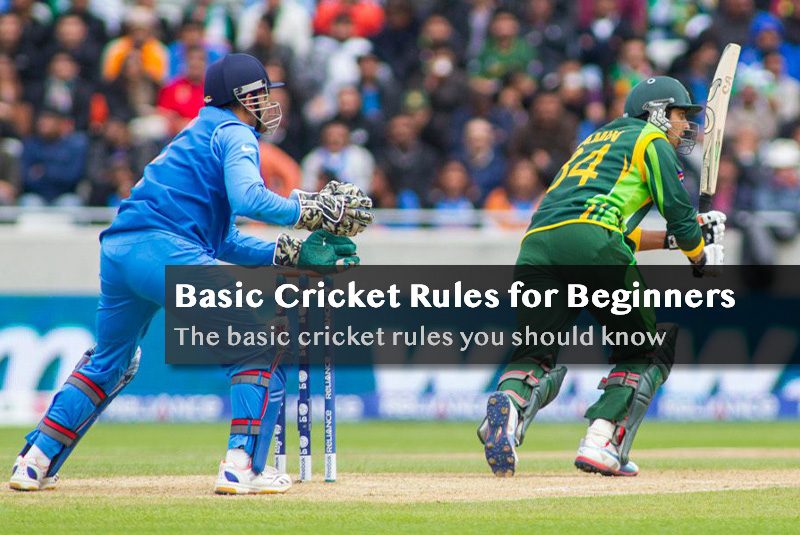 2024-11-20
2024-11-20
Basic Cricket Rules for Beginners: The basic cricket rules you should know
By JeetbanglaBasic Cricket Rules for Beginners: The basic cricket rules you should know
Cricket is an exciting game with a rich history and intricate rules that fascinate millions around the globe. If you’re just starting, understanding the basic cricket rules or cricket laws is essential. Whether you’re curious about how to play cricket games, the equipment, or the different formats like test cricket, this introductory guide will help demystify some of the sport’s basics. In this series, we’ll explore the game from scratch, covering the roles of each cricket team player, the dimensions of the cricket pitch, and more.
Cricket Rule 1: How Many Players in Cricket?
A standard cricket team consists of 11 players, though formats like certain informal games may sometimes
vary the players' number. Typically, a cricket match involves two teams of eleven players each, with
each side taking turns to bat and bowl. The aim is for the cricket team that is batting to score as many
runs as possible, while the opposing team tries to limit those runs or take all ten wickets to end their
batting innings.
Among these cricket players, each has a specific role to play:
- Batsman: Focus on scoring runs.
- Bowlers: Attempt to dismiss batsmen by delivering the cricket ball in various ways.
- Fielders: Supporting the bowler by preventing runs or catching the batsmen out.
In some cases, cricket players act as all rounders, contributing both as batters and bowlers. The player roles are flexible, especially in formats like test cricket, where strategies evolve over longer periods.
Cricket Rule 2: The Ball and The Bat
The cricket ball and cricket bat are the two primary pieces of equipment in any cricket game. The cricket
ball weight usually ranges from 5.5 to 5.75 ounces (156 to 163 grams) and is made of a hard leather
exterior surrounding a cork core. This weight is regulated to ensure fair play, as it affects the pace
and swing of the ball, adding to the game’s dynamics.
A cricket bat, crafted from trusty willow, has to stick to strict rules no taller than 38 inches and no
wider than 4.25 inches, or it is out of bounds. While all bats generally have similar dimensions,
players may choose the weight of the bat based on personal preference. This bat-ball interaction is at
the heart of the game and plays a crucial role in defining player strategies and outcomes.
Cricket Rule 2: Details of the Cricket Ground
The cricket ground size measuring includes the field, the cricket pitch, and specific boundary
dimensions. The cricket pitch length is set at 22 yards (20.12 in meters), which is the distance between
the two sets of wickets. This pitch, positioned at the center of the ground, is where bowlers deliver
the ball to batsmen. Understanding the layout and dimensions of the cricket ground will help beginners
grasp where the game action happens and how different players position themselves.
The boundary line marks the edge of the field, and any ball that crosses it provides automatic runs for
the batting team. Every part of the ground, from the pitch to the boundary, influences how cricket
players perform and strategize during a match.
Mastering cricket rules and understanding cricket laws provide a strong foundation for anyone interested
in the sport, or trying to predict the match outcomes, in order to make a good cricket game betting. With these basics in hand, you’ll be
well-prepared to dive deeper into cricket, from casual play to more advanced formats like test cricket.
Keep learning, and soon enough, the game’s nuances will begin to unfold before you.
